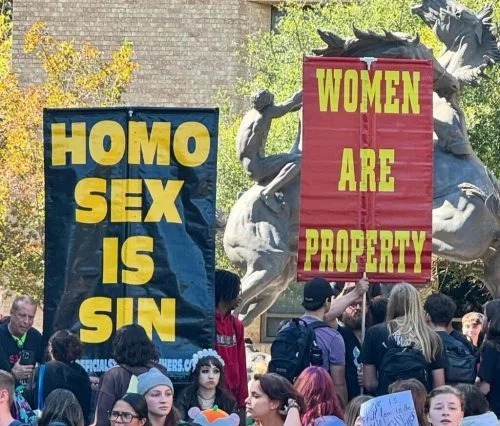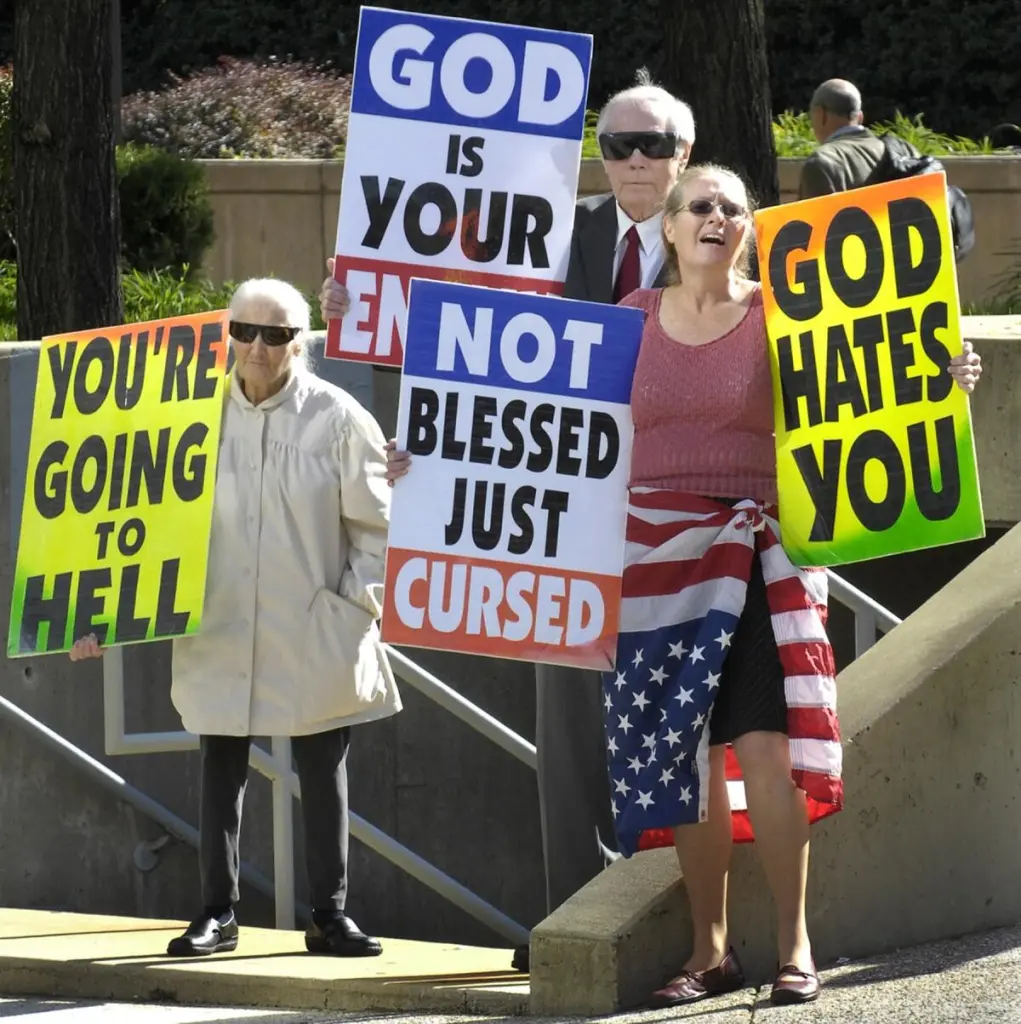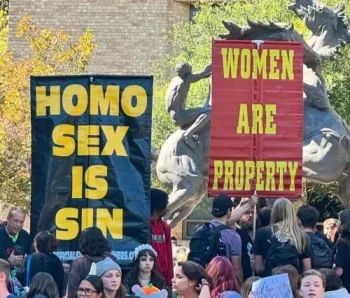
In The Supreme Court of the United States
–––––––––
A Supreme Court case testing the limits of protest, noise ordinances, and religious freedom. What’s really at stake in No. 24-993, and why it matters beyond this single petition.
Gabriel Olivier,
Petitioner,
v.
City Of Brandon, Mississippi;
William A. Thompson,
Respondents.
–––––––––
On Petition for Writ of Certiorari to the
United States Court of Appeals
for the Fifth Circuit
–––––––––
BRIEF OF UNIVERSAL LIFE CHURCH MONASTERY
AS AMICUS CURIAE
IN SUPPORT OF RESPONDENT
–––––––––
October 16th, 2025
QUESTION PRESENTED
The Supreme Court is voting on Whether local governments may lawfully enforce neutral, generally applicable public safety laws, such as noise and abusive language ordinances, against religious speakers whose conduct disturbs the peace, traumatizes children, or targets members of the public with condemnation, without violating the First Amendment.
TABLE OF AUTHORITIES
Cases:
Brandenburg v. Ohio, 395 U.S. 444 (1969) ……………passim
Cantwell v. Connecticut, 310 U.S. 296 (1940) …………passim
Chaplinsky v. New Hampshire, 315 U.S. 568 (1942) ...passim
Church of Lukumi Babalu Aye v. City of Hialeah, 508 U.S. 520 (1993) …….passim
Employment Division v. Smith, 494 U.S. 872 (1990)…passim
Frisby v. Schultz, 487 U.S. 474 (1988) …………………passim
Hill v. Colorado, 530 U.S. 703 (2000) ………………… passim
Prince v. Massachusetts, 321 U.S. 158 (1944) …………passim
Reynolds v. United States, 98 U.S. 145 (1879) ………..passim
Virginia v. Black, 538 U.S. 343 (2003) …………………passim
Ward v. Rock Against Racism, 491 U.S. 781 (1989) …passim
Mississippi Code 1972:
§ 97-35-11 ………………………………………………………3
§ 97-35-9 ………………………………………………………..3
INTEREST OF AMICUS CURIAE
The Universal Life Church Monastery “ULCM” is a non-denominational religious organization that ordains ministers of all faiths and backgrounds. “ULCM” supports religious liberty but also affirms the rights of all individuals to access public spaces free from harassment, intimidation, or public condemnation. “ULCM” submits this brief in support of the City of Brandon, Mississippi, to affirm that religious speech does not excuse conduct that constitutes a public nuisance under valid, content-neutral laws.
SUMMARY OF ARGUMENT
This case is not about suppressing religious belief—it is about drawing a clear legal boundary between protected religious expression and public harassment cloaked in theology.
Gabriel Olivier stood on public sidewalks holding a large, confrontational sign listing groups of people—including “sodomites,” “effeminate,” “rebellious women,” and “drunkards”—and proclaiming that “YOUR SIN CONDEMNS YOU TO HELL.” Using amplified sound and inflammatory language, he directed this messaging toward families, children, and LGBTQ+ individuals in public spaces.
Religious freedom is a cornerstone of the First Amendment. But it is not absolute. The state may restrict speech that endangers public peace, disturbs the welfare of others, or incites fear. As Justice Holmes famously observed, “The most stringent protection of free speech would not protect a man in falsely shouting fire in a theater and causing a panic.” Similarly, no one has a right to weaponize religious language to instill fear or shame in children, intimidate marginalized communities, or disturb shared public environments.
Mississippi’s neutral laws prohibiting abusive language and offensive conduct are narrowly tailored tools to preserve the dignity, safety, and inclusivity of public life. Olivier’s conduct—far from peaceful evangelism—constituted a public nuisance and targeted assault on emotional and psychological safety. The Court should affirm the Respondent’s authority to enforce such laws and protect its people from coercive and harassing speech.
ARGUMENT
I. Mississippi Law Prohibits Public Abusive and Loud Conduct
Mississippi law clearly prohibits abusive, profane, or indecent language in public. Under Miss. Code § 97-35-11 and § 97-35-9, conduct that disturbs public peace through offensive language or amplified noise is unlawful. Olivier’s use of amplified condemnation toward families and children falls squarely within these statutes.
II. Religious Speech Does Not Immunize Harassing Conduct
The First Amendment does not excuse unlawful conduct. Under Employment Division v. Smith (1990), religiously motivated actions are subject to neutral, generally applicable laws. Likewise, in Reynolds v. United States (1879), the Court held that religious belief cannot excuse conduct contrary to law.
Similarly, in Cantwell v. Connecticut (1940), the Court recognized that while religious proselytizing is protected, the State may punish conduct that breaches the peace. In Prince v. Massachusetts (1944), the Court upheld the State’s power to protect children even when religious practices were burdened. Mississippi’s enforcement of its neutral ordinances fits squarely within this constitutional framework.
III. Public Spaces Must Remain Safe and Inclusive for All
Public forums belong equally to every citizen—believer and nonbeliever alike. No one faith may dominate or terrorize another. Olivier’s conduct imposed unavoidable exposure to condemnation on unwilling listeners. The City of Brandon acted to preserve peace and inclusivity.
From the dawn of civilization, humanity has worshiped thousands of gods—Isis and Osiris, Yahweh and Krishna, Allah and Odin, the spirits of mountains, rivers, and ancestors. Yet not one deity, across the millennia, has appeared before this Court to testify. The law therefore must rest not on divine partiality, but on human equality and civic peace. For if one faith may shout condemnation in public parks, then every faith could claim the same, and peace itself would perish.
Mississippi’s law stands not against belief but against the weaponization of belief. It preserves a marketplace of conscience where all faiths coexist without one silencing another. Religious liberty must not become a license for chaos or cruelty. The Universal Life Church Monastery stands upon this mountaintop to affirm that the enforcement of neutral, generally applicable laws is the truest expression of justice—equal under heaven, fair upon the earth.
SUPPORTING PRECEDENTS
Chaplinsky v. New Hampshire (1942) recognized that ‘fighting words’ and personally abusive epithets are not protected by speech.
Frisby v. Schultz (1988) upheld local ordinances preserving residential tranquility.
Ward v. Rock Against Racism (1989) approved neutral sound amplification rules.
Hill v. Colorado (2000) sustained laws protecting unwilling listeners near sensitive locations.
Virginia v. Black (2003) reaffirmed that the State may prohibit speech that intimidates or incites violence.
CONCLUSION
Religious liberty is foundational but not limitless. The Constitution protects belief, not belligerence. Mississippi’s ordinances safeguard public peace while respecting faith’s diversity. This Court should affirm that the First Amendment does not prevent local governments from enforcing neutral, generally applicable laws that shield citizens, especially children, from harassment and fear.
For these reasons, and in the enduring spirit of equality and reverence, the Universal Life Church Monastery stands with Mississippi and the City of Brandon. The law, like faith, and the Supreme Court, must serve peace.
Respectfully,
George Freeman,
Presiding Chaplain Universal Life Church Monastery. https://ulccaselaw.com/universal-life-church-legal-cases/


